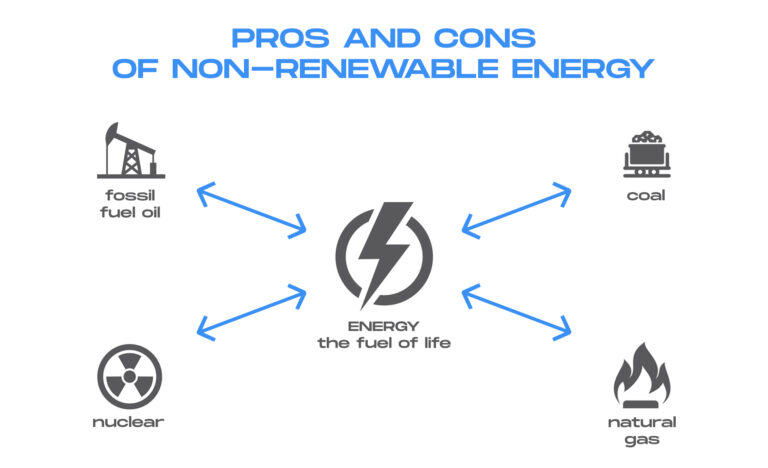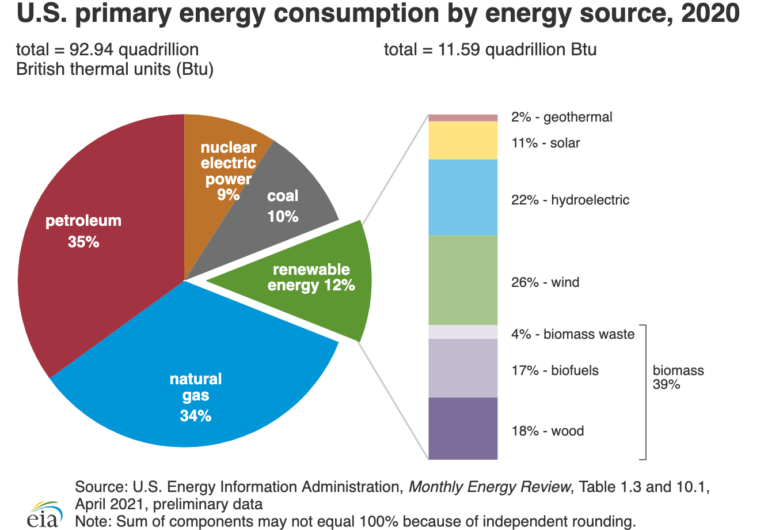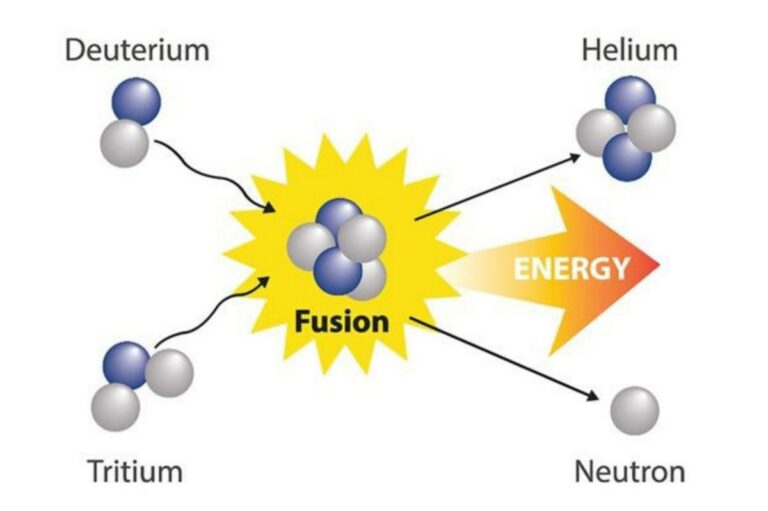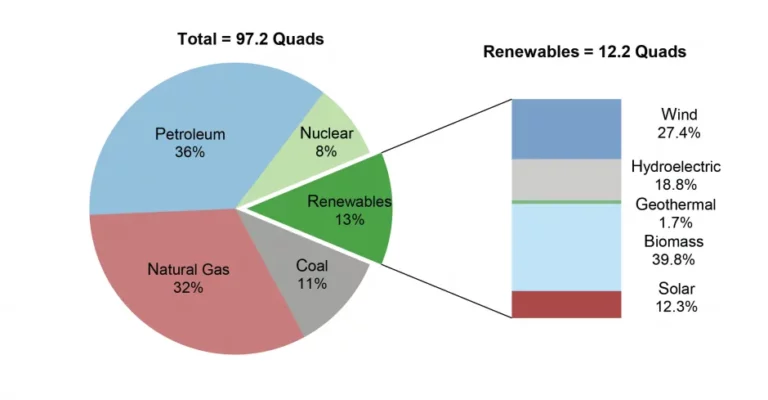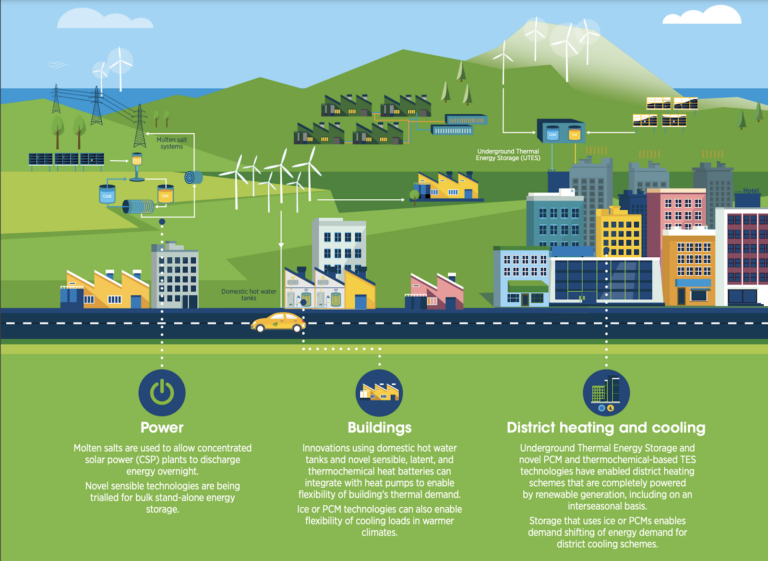What Are The Positive Effects Of Renewable Energy In The Environment?
Have you ever wondered about the positive effects of renewable energy on our environment? Well, you’re in luck! In this article, we will explore the amazing benefits that renewable energy brings to our planet. From reducing greenhouse gas emissions to conserving precious resources, renewable energy is a game-changer when it comes to building a sustainable future.
Renewable energy, such as wind, solar, hydro, and geothermal power, offers numerous advantages for our environment. Firstly, it helps combat climate change by significantly reducing carbon dioxide emissions, which are a major contributor to global warming. By shifting away from fossil fuels towards renewable sources, we can make a substantial impact in curbing the adverse effects of climate change and preserving the planet for future generations.
Another positive effect of renewable energy is its ability to conserve our natural resources. Unlike fossil fuels, which are finite and non-renewable, renewable energy sources are virtually inexhaustible. The sun will continue to shine, winds will keep blowing, and water will flow as long as the Earth exists. This means that we can harness these sustainable energy sources without depleting the Earth’s reserves, ensuring a more sustainable future for all.
So, if you’re excited to delve deeper into the world of renewable energy and discover even more incredible benefits for our environment, let’s jump right in! Together, we can explore the positive effects of renewable energy and learn how it is shaping a greener, healthier planet for all of us. Get ready for a fascinating journey of discovery!
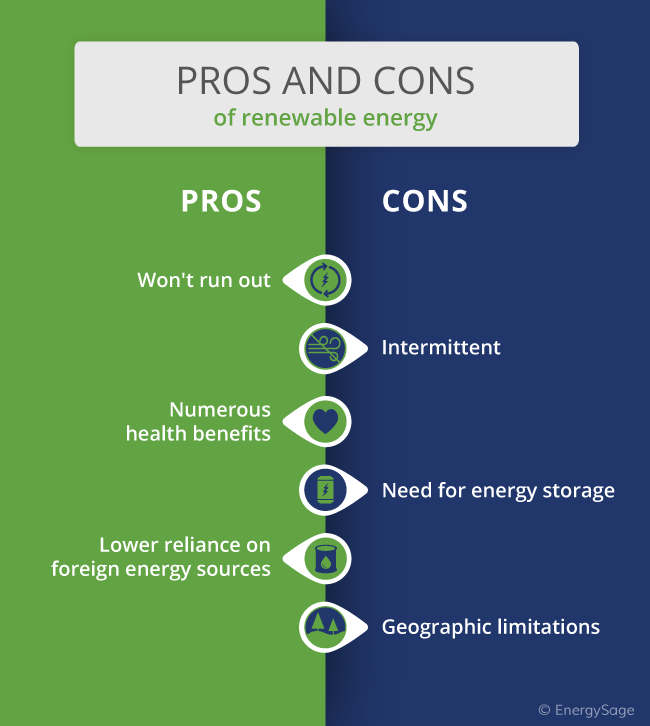
The Positive Effects of Renewable Energy on the Environment
Renewable energy has become a vital part of our efforts to combat climate change and reduce our dependence on fossil fuels. With its lower carbon footprint and abundance, renewable energy sources such as solar, wind, hydro, and biomass offer a sustainable solution for meeting our energy needs. In this article, we will explore the positive effects of renewable energy on the environment and how it contributes to a greener, cleaner, and healthier planet.
1. Reduced Greenhouse Gas Emissions
One of the most significant advantages of renewable energy is its ability to reduce greenhouse gas emissions. Unlike fossil fuels that release carbon dioxide and other harmful pollutants when burned, renewable energy sources produce little to no emissions during operation. Wind turbines, for example, generate electricity without burning any fuel, helping to minimize the release of greenhouse gases that contribute to global warming. By embracing renewable energy, we can mitigate the effects of climate change and protect the environment for future generations.
Furthermore, the deployment of renewable energy technologies displaces the need for fossil fuel-based power plants, which emit substantial amounts of carbon dioxide. By transitioning to renewable energy sources, we can significantly lower our carbon footprint and work towards achieving global climate goals, such as those outlined in the Paris Agreement.
Switching to renewable energy also reduces air pollution, leading to improved air quality and better public health. Fossil fuel combustion is a major source of air pollutants, including particulate matter, sulfur dioxide, and nitrogen oxides, which contribute to respiratory diseases, heart problems, and other negative health impacts. The adoption of renewable energy systems helps to minimize these harmful emissions and create cleaner and healthier communities.
2. Conservation of Natural Resources
Renewable energy sources derive their power from perpetually available resources, such as sunlight, wind, and flowing water. Unlike non-renewable resources like coal, oil, and natural gas, which are finite and depleting, renewable energy harnesses the natural forces of the earth and does not exhaust or diminish these resources. By tapping into sources that naturally replenish themselves, we can ensure a sustainable energy supply that does not harm the environment.
Furthermore, the extraction and production of fossil fuels have severe ecological consequences, including habitat destruction, water pollution, and the release of greenhouse gases. On the other hand, renewable energy systems have a significantly lower environmental impact. Solar panels, for instance, use photovoltaic cells to convert sunlight into electricity without causing any pollution or disturbing ecosystems. Wind turbines, similarly, harness wind energy, leaving no carbon footprint and minimal environmental disturbance.
By embracing renewable energy, we can reduce our reliance on finite resources and transition towards a more sustainable, circular economy. This not only benefits the environment but also reduces the geopolitical tensions associated with the extraction and distribution of fossil fuels.
3. Job Creation and Economic Growth
Renewable energy offers substantial opportunities for job creation and economic growth. As the sector continues to expand, it creates job opportunities across various skill levels, from installation and maintenance to research and development. According to the International Renewable Energy Agency (IREA), the renewable energy sector employed over 11 million people globally in 2018, with significant job growth projected for the future.
Moreover, investing in renewable energy projects stimulates local economies by attracting investment and generating revenue. The construction, operation, and maintenance of renewable energy infrastructure require a diverse range of services, including engineering, manufacturing, transportation, and logistics. This leads to the growth of ancillary industries and the development of new technologies and innovations.
By prioritizing renewable energy, countries can build a sustainable and resilient economy that is less dependent on volatile fossil fuel markets. This creates long-term employment opportunities, enhances energy security, and promotes socioeconomic development.
4. Diverse Energy Portfolio
Renewable energy sources provide an opportunity to diversify our energy portfolio, reducing our dependence on a single source of energy. This is crucial for the stability and reliability of our energy supply. Fossil fuel resources are geographically concentrated, which can lead to energy insecurity and price volatility. In contrast, renewable energy sources are abundant and widely available, offering a decentralized and resilient energy system.
The integration of multiple renewable energy technologies, such as solar, wind, hydropower, and geothermal, creates a balanced energy mix that enhances system reliability. During periods of low wind or sunlight, for example, hydropower plants can provide a consistent base load of electricity. Similarly, the combination of solar and wind power can ensure a more stable and predictable energy supply.
Diversifying our energy portfolio not only improves energy security but also fosters innovation and technological advancements. It encourages research into new renewable energy solutions and facilitates the development of energy storage systems, smart grids, and other technologies that optimize energy generation, distribution, and consumption.
Key Takeaways: What are the positive effects of renewable energy in the environment?
- Renewable energy sources like wind, solar, and hydro power produce clean electricity that helps reduce air pollution.
- Using renewable energy helps combat climate change by reducing greenhouse gas emissions, which are harmful to the environment.
- Renewable energy is sustainable and doesn’t deplete natural resources like fossil fuels, ensuring a healthier planet for future generations.
- Investing in renewable energy technologies creates jobs and contributes to economic growth.
- Renewable energy systems can be installed at smaller scales, allowing individuals and communities to have more control over their energy sources.
Frequently Asked Questions
How does renewable energy benefit the environment?
Renewable energy has several positive effects on the environment. Firstly, it significantly reduces greenhouse gas emissions, such as carbon dioxide and methane, which are responsible for climate change. By relying on sources like solar, wind, and hydro power, renewable energy allows us to generate electricity without burning fossil fuels, resulting in cleaner air and a healthier environment. Secondly, renewable energy greatly reduces air pollution that is harmful to both human health and the planet. Traditional sources of energy like coal and oil emit pollutants that contribute to respiratory diseases and smog. Shifting to cleaner sources of energy helps minimize these negative impacts and promote better air quality.
Furthermore, renewable energy reduces our dependence on finite and limited resources, such as coal, oil, and natural gas. As these resources become scarcer, the cost of extracting them increases, leading to economic and geopolitical challenges. In contrast, renewable energy sources are abundantly available and can be harnessed indefinitely. This not only provides energy security but also stabilizes the energy market and creates more job opportunities in the renewable energy sector. Overall, renewable energy offers a sustainable and environmentally friendly alternative to fossil fuels.
How does renewable energy contribute to the fight against climate change?
Renewable energy plays a crucial role in combating climate change. One of the main contributors to climate change is the burning of fossil fuels, which releases greenhouse gases that trap heat in the atmosphere and contribute to global warming. By transitioning to renewable energy sources like solar, wind, and geothermal, we reduce our dependence on fossil fuels, resulting in lowered greenhouse gas emissions. This helps mitigate climate change and its associated impacts, such as rising sea levels, extreme weather events, and disruptions in ecosystems.
In addition to reducing greenhouse gas emissions, renewable energy also helps to preserve biodiversity and protect natural habitats. The extraction and burning of fossil fuels often involve destructive processes that harm ecosystems and threaten wildlife populations. Renewable energy, on the other hand, has minimal impact on natural habitats, allowing for the preservation of biodiversity and the maintenance of healthy ecosystems. This is crucial for the long-term sustainability of our planet and the well-being of all living beings. By embracing renewable energy, we can make significant strides in the fight against climate change and work towards creating a more environmentally sustainable future.
How does renewable energy benefit human health?
Renewable energy offers numerous benefits to human health. One of the primary advantages is the reduction of air pollution. Traditional sources of energy, like coal and oil, release pollutants that contribute to respiratory diseases, cardiovascular problems, and other health issues. By shifting to renewable energy sources such as solar and wind, we can greatly reduce air pollution and improve the quality of the air we breathe. This leads to healthier communities and a decreased risk of respiratory and cardiovascular ailments.
Moreover, renewable energy also reduces the risk of accidents or disasters associated with fossil fuel extraction and transportation. For instance, oil spills, coal mining accidents, and pipeline leaks pose significant threats to human health and the environment. By transitioning towards renewable energy, we can decrease our reliance on these risky methods and minimize the potential harm they can cause to both human populations and ecosystems.
Furthermore, embracing renewable energy promotes healthier lifestyles by encouraging physical activity and reducing noise pollution. Activities such as cycling or walking to work are more viable in communities powered by renewable energy, as they often prioritize infrastructure for non-motorized transportation. Additionally, renewable energy technologies such as wind turbines and solar panels produce little to no noise, creating quieter and more peaceful environments for people to live in. Overall, the positive effects of renewable energy on human health are considerable and contribute to building healthier and more sustainable communities.
How does renewable energy contribute to economic growth?
Renewable energy has a significant impact on economic growth. Firstly, it creates new job opportunities. The renewable energy sector requires a diverse range of skills, from research and development to manufacturing, installation, and maintenance. As countries invest in renewable energy projects, they create jobs in these areas, boosting local economies and providing employment opportunities for individuals. This can revitalize communities and contribute to a more vibrant and inclusive labor market.
Furthermore, by embracing renewable energy, countries can reduce their dependence on imported fossil fuels. This helps stabilize energy prices and improve energy security. Without relying on foreign sources for energy, a nation can allocate resources towards other sectors of the economy, such as infrastructure, education, and healthcare. This diversification of investments can lead to overall economic growth and development.
Moreover, the renewable energy sector has become an engine of innovation and technological advancement. Clean energy technologies are continually evolving, leading to breakthroughs in efficiency and cost-effectiveness. This has ripple effects across other industries, stimulating innovation and driving economic growth. By investing in renewable energy, countries position themselves at the forefront of the clean energy revolution, attracting investment, fostering research and development, and creating a competitive advantage in the global market. Overall, embracing renewable energy contributes to sustainable economic growth and a more prosperous future.
How does renewable energy promote energy independence?
Renewable energy plays a vital role in promoting energy independence. Unlike fossil fuels, which are often imported from other countries, renewable energy sources are available domestically in almost every region. By harnessing these local resources, countries can reduce their dependence on imported energy and strengthen their energy security.
In addition to reducing reliance on foreign energy sources, renewable energy offers more diversity in the energy mix. Traditional electricity generation systems are often centralized and depend on a limited number of power plants. This makes the grid vulnerable to disruptions and failures. However, with renewable energy, power generation can be decentralized, allowing for a more resilient and robust energy system. Distributed generation through sources like solar panels and small-scale wind turbines empowers communities to generate their own electricity, reducing the risk of blackouts and grid failures.
Renewable energy also helps stabilize energy prices in the long term. Fossil fuel prices can be volatile due to geopolitical tensions and fluctuations in supply and demand. On the other hand, renewable energy sources have lower operating costs and provide a more predictable and stable energy supply. This stability reduces the vulnerability of nations to sudden price spikes and allows for better planning and budgeting.
By embracing renewable energy, countries can reduce their dependence on foreign energy, ensure a more reliable power supply, and stabilize energy prices in the long run. This promotes energy independence and strengthens national security.
Summary
Renewable energy has many positive effects on the environment. It helps reduce air pollution and greenhouse gas emissions by using clean sources like solar and wind power. This improves air quality and slows down climate change. Renewable energy also conserves water and protects ecosystems, as it requires less water for operation compared to fossil fuel power plants. Additionally, it creates jobs and stimulates economic growth, making it a win-win for both the environment and the economy.
In conclusion, renewable energy is a great way to protect our environment, combat climate change, and create a sustainable future for generations to come. By harnessing the power of clean sources, we can improve air quality, conserve water, protect ecosystems, and support job creation. It’s a positive step towards a cleaner and greener planet for all.

